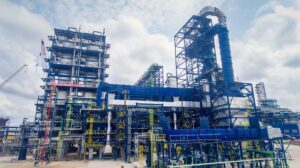Breaking News: The quantum of deals in the oil and gas sector in Nigeria is at its lowest in a decade. Transactions have dropped up to seven folds to $3 billion in 2023 from $20 billion in 2015.
The number of deals in the oil and gas sector is a vital parameter for assessing and determining the wellness of the oil and gas industry and the economy of the country.
Deals in the oil and gas sector include operations like mergers, debt financing, asset sales, acquisitions, partnerships etc.
According to report from PricewaterhouseCoopers (PwC), obtained by 9AM News Nigeria, investments in the oil and gas sector were at their highest in the years prior to 2015 and it peaked at 2015 to $20 billion. Then it remained stable between 2016 and 2018 and finally started to decline, dropping down to $8 billion and in 2020.
In 2021, the oil and gas sector experienced a sharp downturn, with investments dropping to $3 billion.
A state by Pedro Omontuemhen, a partner at PwC, commenting on the report said “Frequent theft, vandalism, and militant attacks disrupt production and cause financial losses, deterring mergers & acquisition activity, as seen with Shell’s pipeline shutdowns in the Niger Delta”
He also added “Infrastructure deficit forces costly alternatives like barging, complicating efficient production and transportation, thus reducing the attractiveness of M&A deals”.
In another statement obtained by 9AM News Nigeria from the former chairman of the Society of Petroleum Engineers (SPE) Joe Nwakwue “securing financing is challenging due to perceived risks and economic instability, hindering local companies’ ability to acquire and develop assets.
Fluctuating global oil prices and demand impact asset valuations, complicate M&A activities, as seen during the COVID-19 pandemic when oil price declines made high acquisition valuations difficult to justify”.
PwC Report
PwC’s report showed a very slight increase to $4 billion in 2024 from $3 billion in 2023 driven by assets sales and acquisitions.
In 2024 there were announcements of notable assets acquisitions by Chappal Energies, Oando, Renaissance Consortium and Seplat Energies.
PwC’s partner Omontuemhen said “as oil production begins to recover, indigenous players may contribute up to 70 percent of production given that there is no change in strategy from new operators or changing investment priorities,”.
On July 3, Gbenga Komolafe, the head of the Nigeria Upstream Petroleum Regulatory Commission (NUPRC), said the Shell’s divestment deal with Renaissance was under review, while another deal with ExxonMobil was on the verge of approval.
Komolafe said they would expedite approval of divestment deals if IOCs took responsibility for cleaning up oil spills.
However the oil companies are saying that they can ramp up oil production by up to 200,000 bpd within one or two years if the government hastened the approval of investment and divestment deals.
Oando Plc (findings by Ogasabi reveal that Oando is run by a nephew of President Bola Tinubu) is currently producing 25,000 bpd. The company stated it is set to increase production to 50,000 bpd once the federal government approves its deal with Eni Limited.
follow 9am news nigeria for more business and financial updates
















